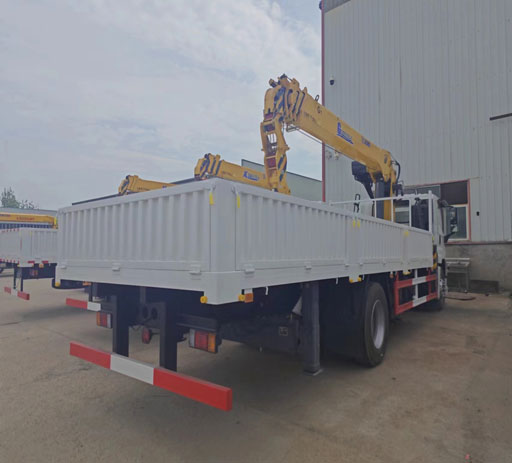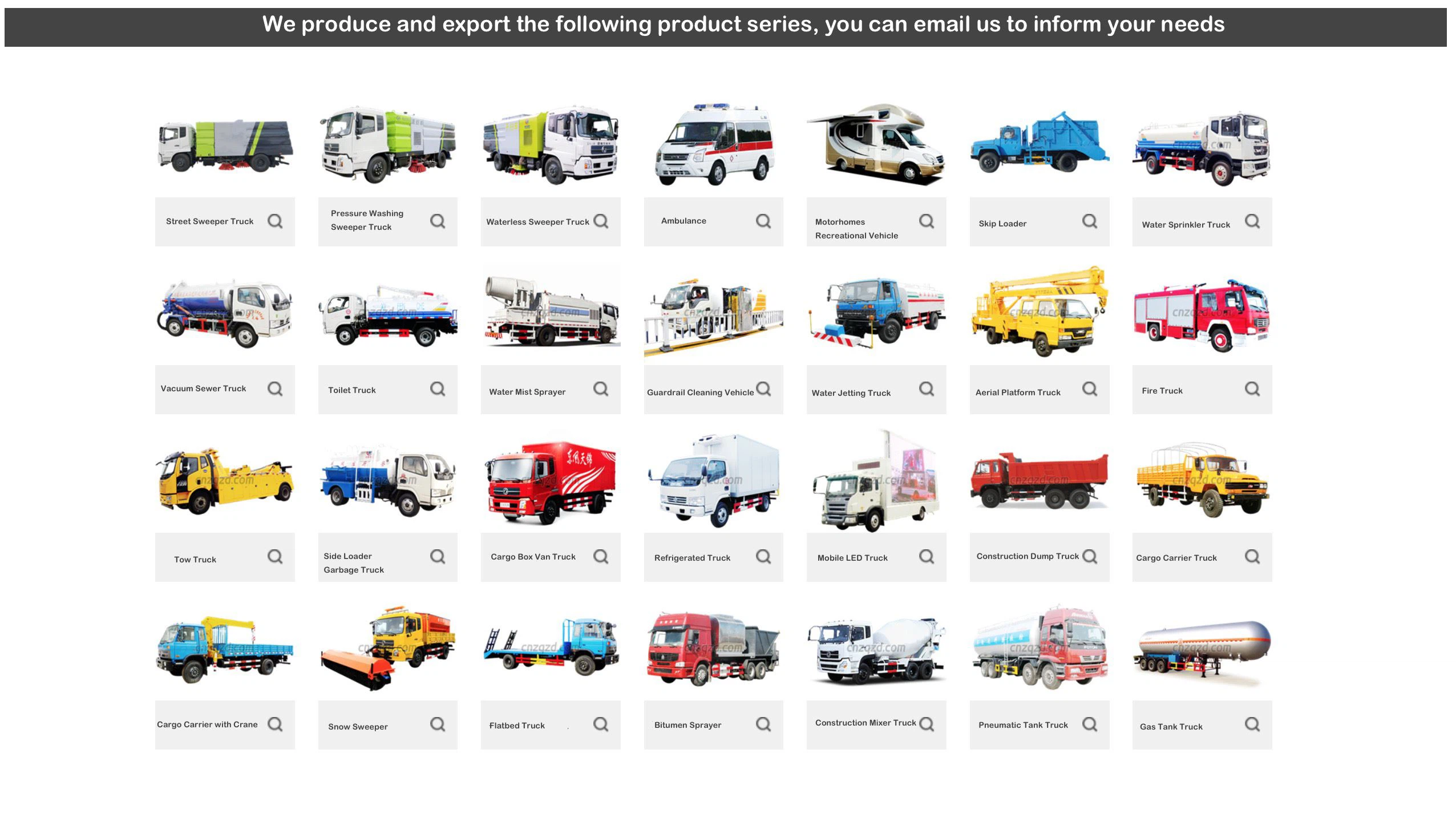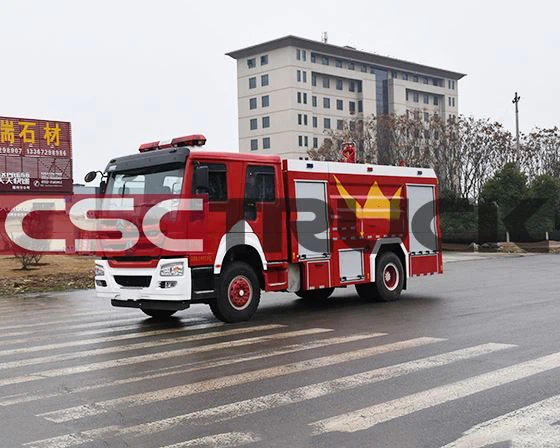Introduction
Trash collector trucks, often seen traversing neighborhoods and commercial areas, play a critical role in maintaining cleanliness and public health. These specialized vehicles are designed to collect refuse and ensure that waste is properly disposed of. In this comprehensive article, we will explore the different types of trash collector trucks, their features, how they operate, and their impact on our environment. We will also provide practical tips on how to choose the right waste management system for your community, along with a set of FAQs to address common inquiries.
Types of Trash Collector Trucks
1. Front Loaders
Front loader trucks are among the most common types of trash collector trucks used in commercial waste management. These vehicles are equipped with large metal forks at the front that lift dumpsters into the truck. This method allows for fast and efficient collection of waste.
Advantages of Front Loaders
- Efficient collection of commercial waste
- Can handle heavy loads
- Ideal for large businesses
2. Rear Loaders
Rear loader trucks are most commonly seen in residential areas. These trucks are designed for manual loading of waste bags and bins from the back. Workers can easily walk beside them, making them ideal for neighborhood collections.
Advantages of Rear Loaders
- Excellent for residential areas
- Flexibility in waste collection locations
- Cost-effective for smaller operations
3. Side Loaders
Side loader trucks have an automated or semi-automated system that collects waste from the side of the vehicle. They can operate with minimal human intervention and are ideal for urban areas where space is limited.
Advantages of Side Loaders
- Automated collection minimizes labor costs
- Ideal for narrow streets
- Enhances speed of garbage collection
4. Compaction Trucks
Compaction trucks are equipped with a mechanism that compresses the waste as it is collected. This feature allows these vehicles to carry more waste per trip, making them highly efficient for large waste collections.
Advantages of Compaction Trucks
- Reduces the number of trips required
- Maximizes payload capacity
- Ideal for high-density areas
Features of Modern Trash Collector Trucks
1. Waste Compaction Systems
Modern trash collector trucks are often equipped with advanced compaction systems to maximize waste storage. These systems use hydraulic power to compress waste, increasing efficiency and reducing the number of trips to waste disposal sites.
2. GPS Tracking Systems

Many newer models have GPS tracking systems that allow waste management companies to optimize routes, monitor fuel consumption, and track the environmental impact of their collections.
3. Eco-Friendly Technologies
With the rise of environmental consciousness, many manufacturers are incorporating eco-friendly features into trash collector trucks. These may include hybrid engines, electric models, or those that run on alternative fuels.
How Trash Collector Trucks Operate
1. Collection Schedule
Trash collection usually follows a set schedule determined by local waste management services. Knowing this schedule helps residents prepare their waste for collection.
2. Route Optimization
Using GPS and route optimization software, waste management companies can determine the most efficient paths for their trash collector trucks, reducing fuel consumption and time spent on the road.
3. Loading and Disposal
Once the truck reaches a collection site, the driver or workers will load the refuse either manually or through an automated system, depending on the truck type. After filling the truck, it heads to a designated landfill or recycling facility for disposal.
Impact on the Environment
1. Waste Reduction
Effective trash collection helps in reducing litter and waste accumulation in public spaces, which can have harmful effects on the environment and community health.
2. Recycling and Composting
Many trash collector trucks are now designed to assist in recycling efforts by separating recyclable materials from general waste at the collection point.

3. Reducing Greenhouse Gas Emissions
The integration of eco-friendly technologies, such as electric trucks, plays a substantial role in minimizing greenhouse gas emissions associated with waste transport.
Choosing the Right Trash Collector Truck for Your Needs
1. Assess Your Waste Management Needs

Before acquiring a trash collector truck, evaluate the volume and type of waste generated in your area. Larger commercial areas will require different trucks compared to residential neighborhoods.
2. Consider the Environment
Opt for trucks that reduce environmental impact. Investing in eco-friendly vehicles can contribute positively to your community’s overall health.
Practical Tips for Effective Waste Management
1. Educate Your Community
Awareness is key. Organize workshops to educate residents on proper waste disposal methods and the importance of recycling.
2. Maintain Regular Collection Schedules
Consistent collection schedules contribute to community cleanliness and convenience for residents.
3. Implement Recycling Programs
Creating a robust recycling program can reduce the amount of waste that ends up in landfills, conserving resources and energy.
FAQs About Trash Collector Trucks
1. What types of waste do trash collector trucks collect?
Trash collector trucks are designed to collect various types of waste, including household waste, commercial waste, recyclables, and sometimes yard waste or construction debris, depending on the truck’s configuration.
2. How often do trash collector trucks operate?
Collection schedules vary by community, but most residential areas have weekly collections, while commercial areas might have more frequent pickups based on waste volumes.
3. What is the average lifespan of a trash collector truck?
The average lifespan of a trash collector truck can range between 10 to 15 years, depending on maintenance, usage, and operating conditions.
4. Can I request special collections for large items?
Many waste management services offer special collections or bulk item pickups upon request. Contact your local waste management service to inquire about their policies.
5. How do eco-friendly trash collector trucks work?
Eco-friendly trash collector trucks utilize either hybrid or fully electric engines and may use alternative fuels that significantly reduce emissions and environmental impact compared to traditional diesel trucks.
6. Are there any regulations for trash collection trucks?
Yes, trash collector trucks must comply with various local, state, and federal regulations regarding emissions, safety standards, and operational practices to ensure public health and environmental protection.